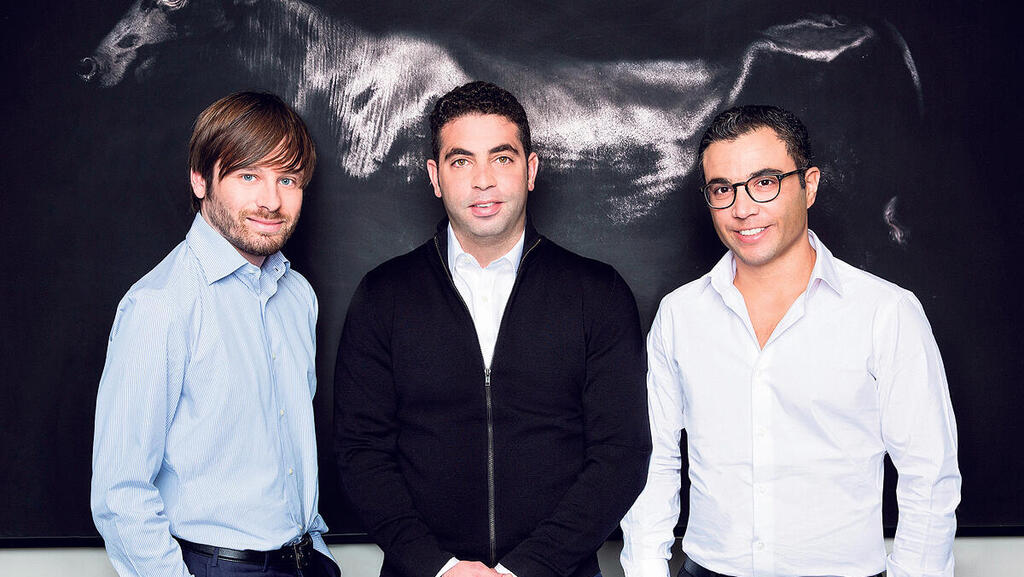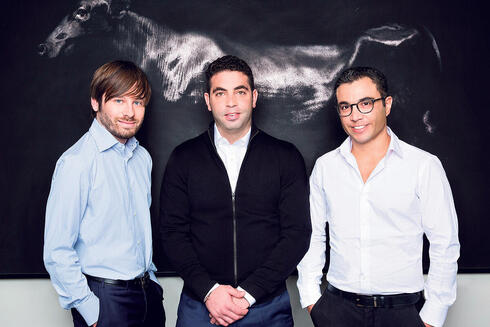
Pagaya suspends full immediate withdrawals from Opportunity Fund
The Pagaya Opportunity Fund, the largest P2P fund in Israel, manages about NIS 4.7 billion ($1.28 billion), and says that it will instead use a mechanism to transfer funds on a quarterly basis
Changes across global markets and rising interest rates are now impacting Israel's largest consumer credit fund. The Pagaya Opportunity Fund, which manages assets of almost NIS 4.7 billion (approximately $1.28 billion) and is a subsidiary of Nasdaq-listed Israeli fintech company Pagaya, has told its customers that it is suspending the ability to make full and immediate withdrawals. This is amid an extremely high number of requests for withdrawals.
A letter that the fund's management sent to clients last Thursday stated that due to a large amount of requests for withdrawals, amounting to tens of millions of dollars, the fund is suspending immediate and full withdrawals of funds. Customers who have already requested withdrawals will receive them, but going forward customers will receive the requested funds in quarterly installments.
This is known as the “side pocket” mechanism; funds that the customer requests to withdraw go to a separate account, from which they will be transferred to the customer later. Once the money is transferred to the side account, it is no longer considered part of the fund's assets. The transfer of the funds to the clients will be made from the future cash flow that will be generated through loans and not from the existing assets or its equity. This is a common practice among investment funds when there is fear regarding liquidity.
The Pagaya Opportunity Fund, established in 2018, operates in the field of P2P (peer-to-peer) loans and is one of three funds operated by a subsidiary of Pagaya. Funds are raised from qualified investors and used to provide loans. The fund operates in the U.S. market only.
Like other consumer credit funds, the Pagaya Opportunity Fund is part of a long line of funds that operate in an alternative field, that is, in a non-tradable area. Israeli consumer credit funds that operate in the U.S. have done well in recent years thanks to the low interest rates. However, starting in March of 2022, various central banks began to raise interest rates in response to rising inflation. As a result, interest rates in the U.S. climbed from zero to 4.75%-5% within the last year.
Related articles:
The increased interest rates have damaged the value of various risk assets, such as stocks, bonds, as well as consumer credit. This is because when interest rates are so high, the public tends to transfer their funds to more stable investments with reduced risk. In addition, when the interest rate rises at the same time as inflation, which is currently very high, the purchasing power of the public is eroded. Rising interest rates also increase the risk of default in the consumer credit sector.
Due to the economic situation, the Pagaya Opportunity Fund also decided to reduce the value of the fund's investment portfolio last December, by tens of millions of dollars. As a result, in the last month of 2022 the fund presented a negative return of 1.74%. The fund ended 2022 with a return of 4% and assets worth a total of $1.4 billion. Due to withdrawals and negative evaluations, the scope of the assets currently stands at $1.28 billion, and it is estimated that due to the withdrawals it will decrease further in the coming months.
The fund says that the decreased valuation of the assets was done responsibly due to the current economic situation. According to the fund's management, there is no expected weakness on the fund's horizon, and they said in response that "Pagaya ended 2022 having issued $7.3 billion. This is while other Israeli funds had issued hundreds of millions of dollars, if at all. It is no secret that the changes in the global economic environment are a challenge to all areas of investment. In our opinion, a fund manager who does not make adjustments might present higher returns in the short term, but may expose his investors to increased risks and lower returns in the long term.
"In accordance with the re-evaluation policy of the fund, a periodic review of the fair value of the assets is carried out by an independent third party. At the end of 2022 it was decided to carry out a write-down as requested. The fact that other funds in the field of consumer credit in Israel did not carry out value reductions raises questions about the adequacy of their re-evaluation methods."
Apart from the Pagaya Fund, there are two other large consumer credit funds in Israel. One is managed by the IBI investment fund, which manages assets totaling $778 million, and the other by a Phoenix Insurance subsidiary, which manages about $246 million in assets. Both of these funds operate in a different format than Pagaya, and are focused on purchasing existing loans granted on other P2P platforms. Three weeks ago, Phoenix’s fund, the Phoenix Value P2P, also suspended withdrawal of funds due to an increased rate of requests.
Pagaya, the parent company of the Pagaya Opportunity Fund, was established in 2016 by CEO Gal Krubiner, CTO Avital Pardo and CRO Yahav Yulzari. Last June, Pagaya became a publicly traded company on the Nasdaq after completing a SPAC merger at an $8.5 billion valuation. Soon after entering the Nasdaq, Pagaya was briefly the most highly valued Israeli company in the world, valued at $20 billion, but since then its stock has weakened significantly and today the company's market cap is only about $660 million.
Amid the current economic crisis, Pagaya laid off around 140 employees, accounting for about 20% of its workforce. 110 employees were laid off in Israel and the rest in the U.S. The layoffs are part of an effort to save $30 million a year.
